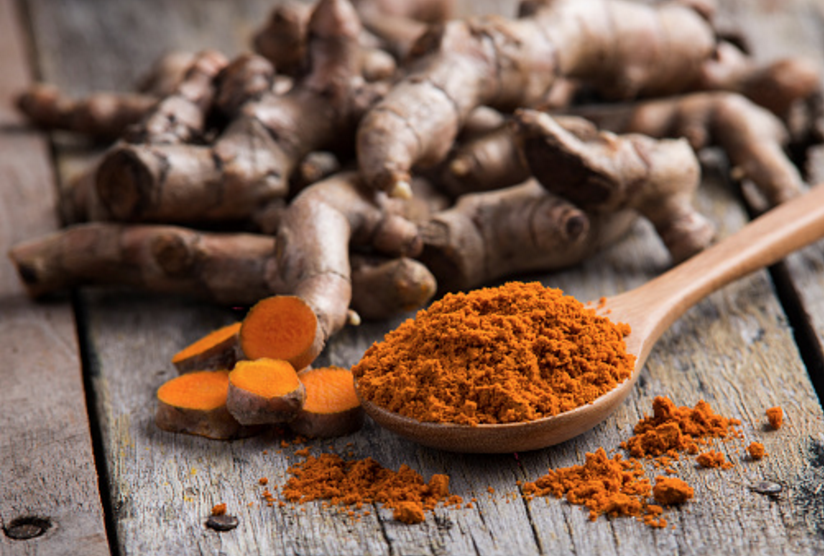Turmeric: Hot Topic of the Year!
If you like yellow curry, you’ve probably tasted turmeric. It’s commonly found in Indian, Malaysian, Indonesian, Chinese, Thai and other Asian cuisines, because it’s the primary spice in curry. In food and manufacturing, turmeric essential oil is used in perfumes and cosmetics, and its resin is used as a flavor enhancer and color component in foods. Its bright yellow color has been a source of natural dyes for centuries, and its root is widely used to make medicine. That’s just for starters.
What all the talk centers around is the more than 600 purported health benefits. Since 1900 B.C. (the time of Ayurveda) turmeric in various forms (sliced, ground, powdered, tinctured, etc.) has been used to address a wide range of conditions. It’s touted to help the skin, pulmonary and gastrointestinal systems as well as the joints. It’s been shown to exhibit antioxidant, anti-inflammatory, antiviral, antibacterial and anticancer activities.1
What is of particular interest to us is that turmeric is known to protect the brain in a variety of ways, because it is “a potent antioxidant that readily crosses the blood-brain barrier.” 2 Some specific brain boosting abilities are attributed to the natural chemical in turmeric called curcumin.
- It is believed to improve memory and concentration by increasing blood flow and neurotransmitter formation.3
- It increases the production of serotonin and dopamine, two of the brain chemicals that produce a feeling of contentment or happiness.4
- It helps increase levels of brain-derived neurotrophic factor (BDNF).5BDNF is a protein that stimulates brain cell production.
- The omega-3 fatty acid known as DHA is a major building block of the brain. Its deficiency is believed to be the cause of various neurological disorders. Curcumin enhances DHA synthesis and increases its levels in the brain.6
Although curcumin is known as an active component, the entire root or the whole turmeric plant serves a variety of purposes. For example, there is turmerone, a beneficial compound found in turmeric root. Studies and research have been conducted to show how turmerone stimulates the production of new neurons which can be useful for degenerative brain diseases, traumatic brain injury and stroke.7 Research in these areas with relation to the use of stem cells in the treatment of certain neurological conditions is fairly new, but scientists are making headway with the effects of turmerone on brain disorders.8

No comments:
Post a Comment